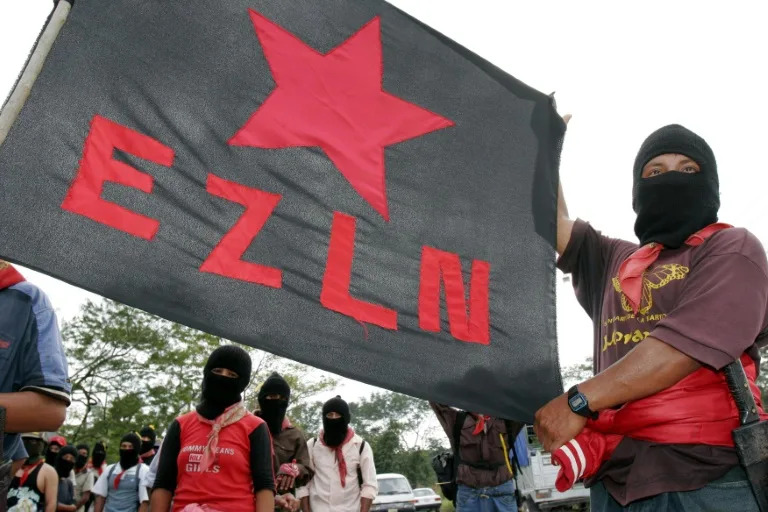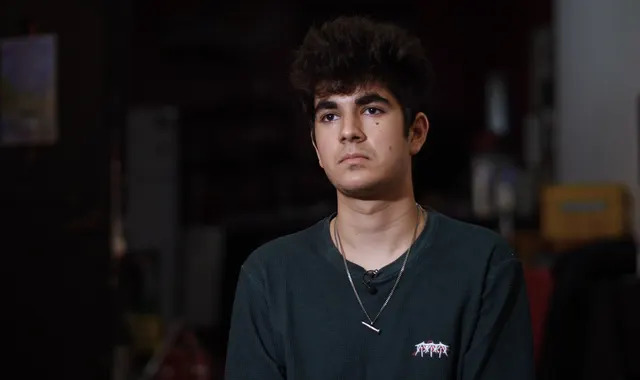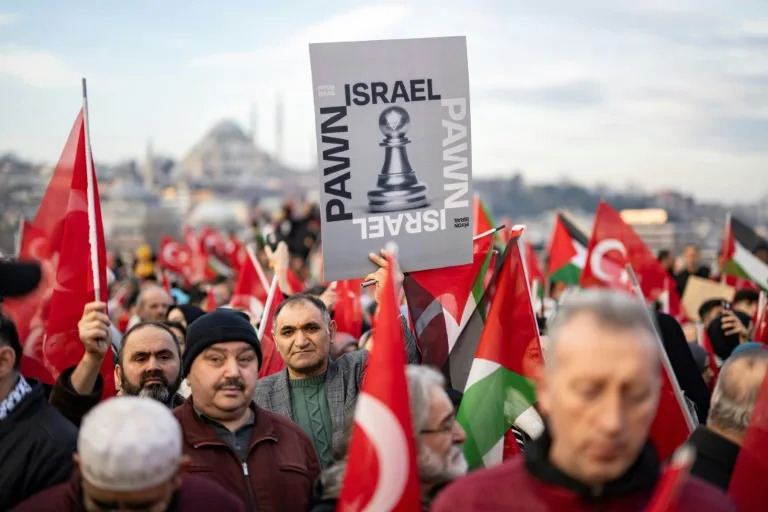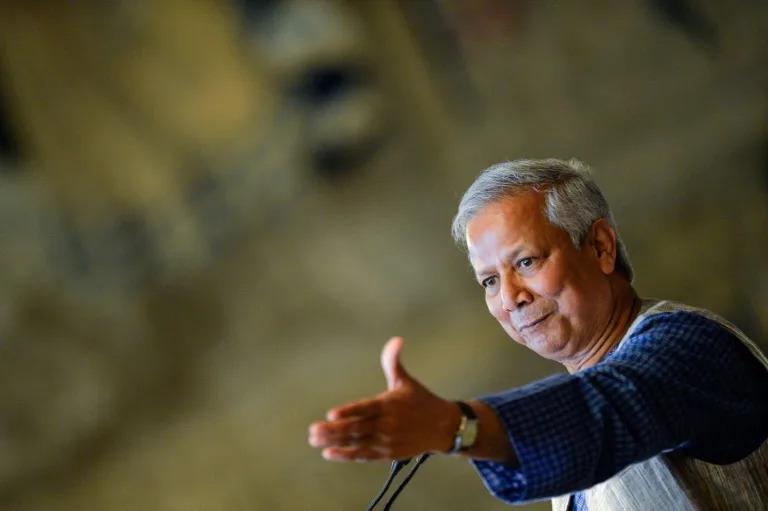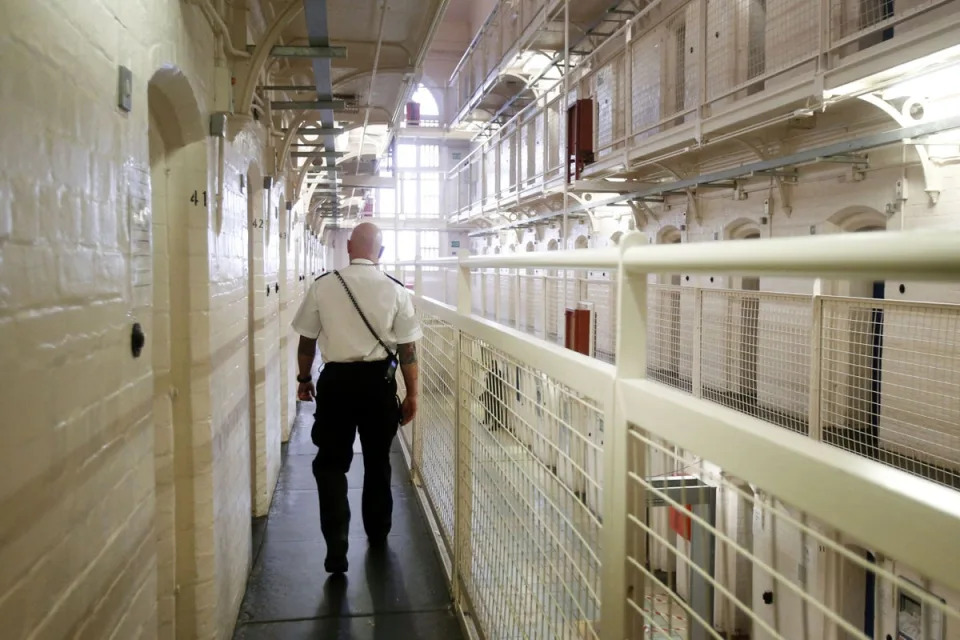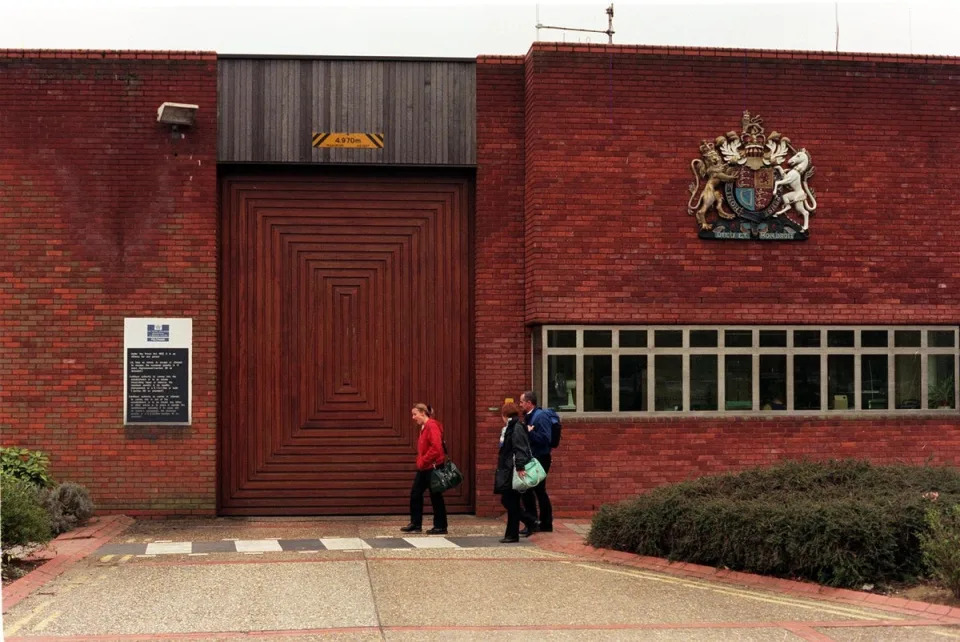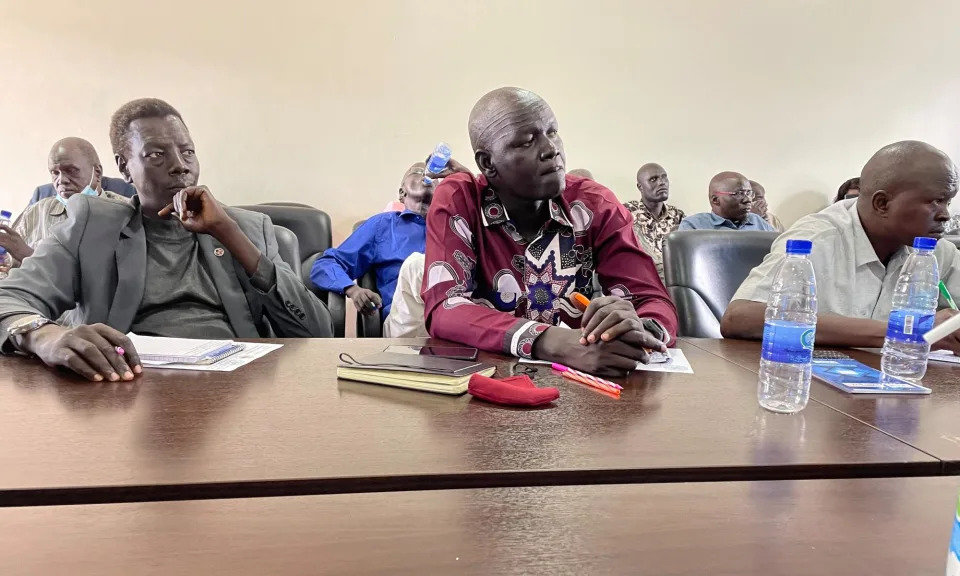Jonathan Watts
THE GUARDIAN
Mon, 1 January 2024

Photograph: FG Trade/Getty Images
Two new coalitions of scientists, lawyers, philosophers and artists have joined the burgeoning global campaign for ecosystems and other species to have legal rights and even political representation.
The More Than Human Rights (Moth) project and Animals in the Room (Air) are exploring bold tactics to further their cause, including authorship claims for forests, policy advocacy on behalf of bears and whales, and fungal strategies to spread ecological thinking.
They represent a new wave of nature and animal rights movements gaining traction amid frustration over humanity’s ultra-exploitative relationship with other species and growing concern about the shortcomings of the technology-and-markets approach to the climate crisis.
“We want to take the idea of rights of nature from the margin to the mainstream. The idea is to embed society in the biosphere,” said César Rodríguez-Garavito, a Colombian legal scholar who heads the Earth Rights Advocacy Clinic at New York University.
Rodríguez-Garavito is the founder of Moth, which intends to set a legal precedent by establishing the creative rights of the Los Cedros cloud forest in northern Ecuador, which has already been recognised as an entity possessing legal personhood and rights under a landmark 2021 judgment by the constitutional court of Ecuador.
In a test case, Moth will argue that a new piece of music was co-created by the forest with the British musician Cosmo Sheldrake. In Song of the Forest, Sheldrake recorded the forest’s voices, including birds, animals and trees, and then mixed this with electronically produced rhythms, his own words and those of other Moth members, including his mycologist brother Merlin and the British author Robert McFarlane. Sheldrake will perform the song in Ecuador’s capital, Quito, next year, after which Rodríguez-Garavito and Ecuadorean lawyers will assert the co-authorship of Los Cedros.
“I wanted to give some of the creative rights to creatures or ecosystems, but I realised there is no structure in place,” Sheldrake said. As the closest comparison, he cited Earth Percent, a company founded by Brian Eno that aims to recognise the planet as a stakeholder in music creation, but Sheldrake said even this “does not address the fundamental issue of authorship rights for birds and other creatures, or places”.
If successful, this would extend the domain of intellectual rights, which thus far have been recognised only for human creators. In the “monkey selfie” case in 2011, for example, a photographer was sued by an animal defence organisation for making money from a photograph that a monkey had taken on the man’s cellphone. The judge refused to accept that nonhumans can have ownership rights.
Mon, 1 January 2024

Photograph: FG Trade/Getty Images
Two new coalitions of scientists, lawyers, philosophers and artists have joined the burgeoning global campaign for ecosystems and other species to have legal rights and even political representation.
The More Than Human Rights (Moth) project and Animals in the Room (Air) are exploring bold tactics to further their cause, including authorship claims for forests, policy advocacy on behalf of bears and whales, and fungal strategies to spread ecological thinking.
They represent a new wave of nature and animal rights movements gaining traction amid frustration over humanity’s ultra-exploitative relationship with other species and growing concern about the shortcomings of the technology-and-markets approach to the climate crisis.
“We want to take the idea of rights of nature from the margin to the mainstream. The idea is to embed society in the biosphere,” said César Rodríguez-Garavito, a Colombian legal scholar who heads the Earth Rights Advocacy Clinic at New York University.
Rodríguez-Garavito is the founder of Moth, which intends to set a legal precedent by establishing the creative rights of the Los Cedros cloud forest in northern Ecuador, which has already been recognised as an entity possessing legal personhood and rights under a landmark 2021 judgment by the constitutional court of Ecuador.
In a test case, Moth will argue that a new piece of music was co-created by the forest with the British musician Cosmo Sheldrake. In Song of the Forest, Sheldrake recorded the forest’s voices, including birds, animals and trees, and then mixed this with electronically produced rhythms, his own words and those of other Moth members, including his mycologist brother Merlin and the British author Robert McFarlane. Sheldrake will perform the song in Ecuador’s capital, Quito, next year, after which Rodríguez-Garavito and Ecuadorean lawyers will assert the co-authorship of Los Cedros.
“I wanted to give some of the creative rights to creatures or ecosystems, but I realised there is no structure in place,” Sheldrake said. As the closest comparison, he cited Earth Percent, a company founded by Brian Eno that aims to recognise the planet as a stakeholder in music creation, but Sheldrake said even this “does not address the fundamental issue of authorship rights for birds and other creatures, or places”.
If successful, this would extend the domain of intellectual rights, which thus far have been recognised only for human creators. In the “monkey selfie” case in 2011, for example, a photographer was sued by an animal defence organisation for making money from a photograph that a monkey had taken on the man’s cellphone. The judge refused to accept that nonhumans can have ownership rights.
Elephant AI to fungal protection
The forthcoming forest, or “Copygreen”, case was one of a number of nature rights ideas discussed by Moth at a week-long workshop in Chile.
Among the participants was the geo-philosopher and deep ecologist David Abram, who first coined the term “more than humans”. “We need an ecology of language. What we say profoundly affects our senses,” he said. “We also need to recognise that humans are not the only species capable of language.”
Other speakers ranged from Silicon Valley experts, who explained how artificial intelligence is being deployed to interpret the language of elephants and whales, to mycologists who envisaged a campaign modelled on the “everywhere, all at once” proliferation of fungal spores. Giuliana Furci, the Chilean founder of the Funghi Foundation, said she had already persuaded her government to incorporate the protection of endangered fungi in all infrastructure projects. “They are like a keystone species,” she explained. “If you protect one that covers a wide area, then you preserve a whole ecosystem or habitat.”
José Gualinga, a leader of the Sarayaku people of Ecuador, urged Moth to follow the example of his community. “We are trying to convince people the forest is a living being,” he said. As well as the rights of nature, he stressed the responsibilities of humans. “Non-indigenous humans see nature as something separate from themselves. They forget we are part of nature.”
The broader rights of nature movement dates back to at least 1972, when Christopher D Stone, a law professor at the University of Southern California, wrote a journal article entitled Should trees have standing, in which he proposed giving legal rights to nature.
Since then, it has expanded in spurts. The Center For Environmental Rights has collated a list of the countries, regions and legal systems that have recognised rights for nature. Ecuador, Bolivia, Uganda, the United States, Canada, Brazil, New Zealand, Mexico and Northern Ireland have some recognition of the rights of nature in their constitutions, national laws or local regulations. Court decisions in India and Colombia have recognised the rights of ecosystems or rivers. Ireland may be the next to follow, depending on the outcome of a proposed referendum on protecting biodiversity.
The United Nations is also looking into the legal implications of rights of nature, which were mentioned in the last meeting of the Convention on Biological Diversity.
It is the subject of academic research. “The law can give rights to all kinds of entities if it finds reason to do so,” noted scholars Guillaume Chapron, Yaffa Epstein and José Vicente López-Bao in an article in Science. “Corporations, trade unions, and states are all nonhuman entities that have rights and duties under the law. They have rights to litigate if they are injured and duties not to violate the rights of others. The legal system has no difficulty adjudicating nonhuman rights.”
The trio predicted that adjudicating conflicts between rights of nature and human activities would be controversial, but no more so than conflicts between human rights to free expression and non-discrimination. “Conflicts between nature and human activities happen on a massive and systematic scale. When people and corporations have rights and nature does not, nature frequently loses, as evidenced by the continuing deterioration of the environment. Rights of nature may help to prevent this one-sided outcome.”
Guardianship roles
Older campaigns for animal and human rights focus on individuals rather than landscapes, nature or the planet. The new rights of nature movements are exploring novel strategies, including on the political front. Their argument goes that if guardians can be appointed as legal representatives for incapacitated humans, corporate entities and ecosystems, then perhaps they can also stand in as political proxies to ensure other species can be “heard” in decision-making.
This is the focus of Air, a network that brings together philosophers, scientists, animal welfare specialists, artists, and communities to devise and test ways of including non-human animals in human decision-making.
Next year, Air will open a research centre in New York focused on inclusive practices for animals and nature in law, politics and the arts. It will begin with a study in Italy of how to include bears in policy formulation by human communities. There are plans for similar projects to represent elephants in Kenya and whales in the ocean.
One of the cornerstones of its work, according to the founder, Melanie Challenger, is that participants should listen to the animals in question, rather than present themselves as experts. “It is more than just a scholarly and policy-based approach; it is a philosophy and a practice,” said Challenger, who is also a vice-president of the RSPCA and author of How to Be Animal.
She said ideas about political representation for animals moved into the public realm in 2023 with articles being published and talks given to animal charities, Earth governance experts and sustainability groups. “We feared scepticism and, instead, have been met with enthusiasm and, in some ways, relief. People who care passionately about the living world recognise that the old moral and legal tools aren’t fit for purpose,” she said.
Underpinning Air’s work is a growing trend of looking at ways to widen democracy with deliberative assemblies. In a just society “animals must have their perspectives sought out, understood and fed into decision-making in equitable terms,” said the political philosopher Alasdair Cochrane, the author of Sentientist Politics: A Theory of Global Inter-Species Justice.
Along with other groups such as the Center for Democratic and Environmental Rights, the Global Alliance for the Rights of Nature and the Environmental Justice Network , some feel the campaign may be approaching a critical mass.
“There is certainly something brewing here,” said Pooven Moodluy, a founder of the Earth Rights Collective and member of Moth. His hope was for Indigenous wisdom to combine with new technology: “That could be quite powerful. Indigenous wisdom has to be at the forefront.”
Edginess v realism
The main division between the groups is on the scale at which rights or political representation should be granted. Some organisations believe it should be limited to pets, others to the more obviously sentient animals, such as whales, cows, pigs and bears. Others want to focus on river basins or mountains, or on nature as a whole. The Indigenous leader Davi Kopenawa Yanomami goes even further: “I think it is better to talk about the rights of the Earth more than the rights of nature … If we are serious, we must not allow any more projects to destroy the Earth.”
There is also the question of how far to push the agenda. Talk of rights for forests or political representation for animals is so unusual that it can raise smirks of derision. But Rodríguez-Garavito believes people are now more willing to consider ideas that were previously on the fringes. “We want to find the sweet spot between edginess and realism. I don’t want a backlash, but the line between the status quo and the absurd has moved. We live in absurd times in many ways. It is necessary to be bolder than before,” he said. “People are open to fast change. We are all feeling the heat of climate change and biodiversity collapse.”
As a precedent, he recalls that 20 years ago, everyone thought Earthjustice lawyers were crazy when they launched a case against the US government on the grounds that the climate crisis was a human rights violation. Now there are so many of these cases that it has become normal.
“This is a highly experimental project,” he said of Moth. “We are working with a compass rather than a map. But we want to showcase how these ideas might work in practice. We will get some things wrong, but that is how we will advance, by specifying, mainstreaming and steadily giving more teeth to rights of nature.”
